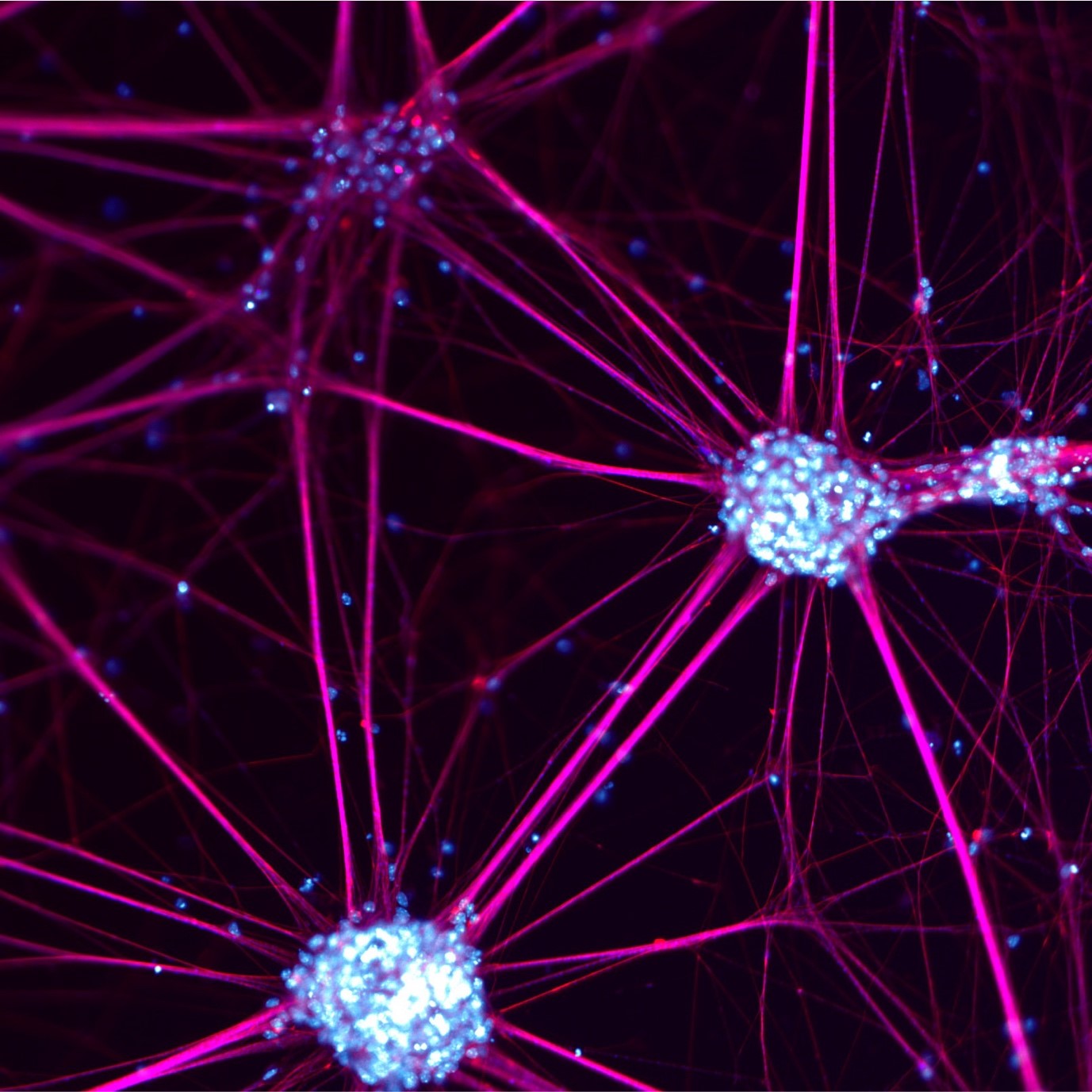RNA Regulation in Neurons and Neurodegeneration

Neurodegeneration disorders are devastating incurable diseases, predicted to become the second leading cause of death by 2040 due to population ageing. A common theme across neurodegenerative disorders is that they begin with the loss of neuronal extensions (neurites – axons and dendrites). The formation and function of neurites relies in large part on the asymmetric subcellular localization and translation of mRNAs. This highly regulated process is not unique to neurons and occurs in a variety of highly polarized cells, such as oocytes, migrating and growing cells. It underlies the establishment of the body axis, cell growth, cell migration, and synaptic plasticity, which is the basis for learning and memory.
The prevailing model suggests that mRNAs utilize specific sequences in their 3’UTRs, referred to as ‘zipcodes’, to localize to different subcellular locations. Zipcodes are bound by trans-acting factors, RNA-binding proteins (RBPs), that link their targets to transport machinery or regulate their stability and translation in a localization-dependent manner. Although thousands of mRNAs are known to be localized in neurons, only a small number of zipcodes and trans-acting factors have been identified so far. Addressing this knowledge gap, we developed a compartmentalized neuronal culture enabling the separation of cell bodies and neurites (Zappulo et al. Nature Comm 2017, Ciolli Mattioli et al. NAR 2019, Ludwik et al. Methods 2019), coupled with a massively parallel reporter assay for mapping RNA localization elements transcriptome-wide (N-zip, Mendonsa et al. Nature Neuro 2023). Using this technique, we identified localization elements in one-third of the analyzed transcripts and provided the first evidence of miRNA let-7 affecting mRNA localization. We further investigated the role of RNA stability and m6A modifications in mRNA localization (Loedige et al. Mol Cell 2023). Our analysis revealed that a high mRNA half-life in neurons reliably predicts localization to neurites, a mechanism that is essential for the localization of most housekeeping mRNAs involved in translation. This plays a critical role in neuronal activity. Collectively, our research has reshaped the understanding of the mRNA localization model established in the 1990s.
Currently, our research is centered on mechanistic understanding of neurodegenerative diseases such as ALS and CMT (Charcot-Marie-Tooth disease, Mendonsa et al. NAR 2021). Rather than targeting the specific mutations causing these diseases, we aim to understand the shared mechanisms across various neurodegenerative conditions. Specifically, we are investigating the initial loss of axons, along with associated defects in axonal transport and protein synthesis. This focus is particularly relevant given the diverse etiology of these diseases and the fact that over 90% of ALS cases are sporadic, with no identifiable genetic cause. Our objective is to develop conceptually new therapeutic strategies that could be applicable to multiple forms of neurodegeneration.
Conférencier(ère)s
Marina Chekulaeva
Berlin Institute for Medical Systems Biology, Max Delbrück Center
Allemagne
